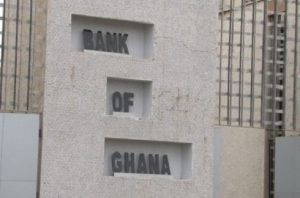 The Bank of Ghana (BoG) has decided to intervene on the foreign exchange market with a daily supply of $20 million to allow foreign investors to participate in the country’s short-term debt instruments.
The Bank of Ghana (BoG) has decided to intervene on the foreign exchange market with a daily supply of $20 million to allow foreign investors to participate in the country’s short-term debt instruments.
This is in a bid to boost liquidity on the money market.
The intervention is also to scale up dollar sales on the interbank market from $14 million a week in a renewed attempt to stabilise the cedi, which has shed more than 20 per cent in value against the dollar in recent times.
The Governor of the BoG, Dr Henry Kofi Wampah, told the Daily Graphic in an interview in Accra yesterday that the move would enhance secondary market development and boost liquidity on the money market investment to impact on the cedi.
“We expect the cedi to stabilise by the end of the first half of the year when we have some major offshore inflows,” he said.
The government, which currently allows only foreigners to buy domestic notes with terms of three years and higher, now plans to allow foreigners to buy into maturities lower than two years.
The government’s short-term debt market of one-year and two-year auction is currently reserved for local Ghanaians, while foreign investors are encouraged to invest in long-term instruments of three years upwards.
“We have raised our intervention significantly over the past two weeks. This is going to continue and we will do more as and when necessary to ease pressure on the cedi,” he said.
Expected offshore inflows
Dr Wampah said the robust interbank intervention would continue, saying he expected dollar inflows from donors, as well as the Eurobond and the cocoa loan, to boost the central bank’s foreign exchange reserves.
Last year, foreign investors bought GH¢168 million ($60 million) or about 80 per cent of the three-year notes sold by the central bank.
The 25.48 per cent yield on the GHc207.1-million sale was “too high”, forcing the BoG to reject some bids. It had offered GHc400 million.
This means that offshore investors who want to participate in the country’s short-term debt market can exchange their dollars at the various commercial banks for cedis for the purchase of the debt instruments.
This is expected to boost liquidity on the money market and improve the foreign exchange reserves of commercial banks, increase the supply of dollars on the market to meet demand and reduce the pressure on the cedi.
This will consequently reduce demand for the dollar and help stabilise the cedi.
Graphic





